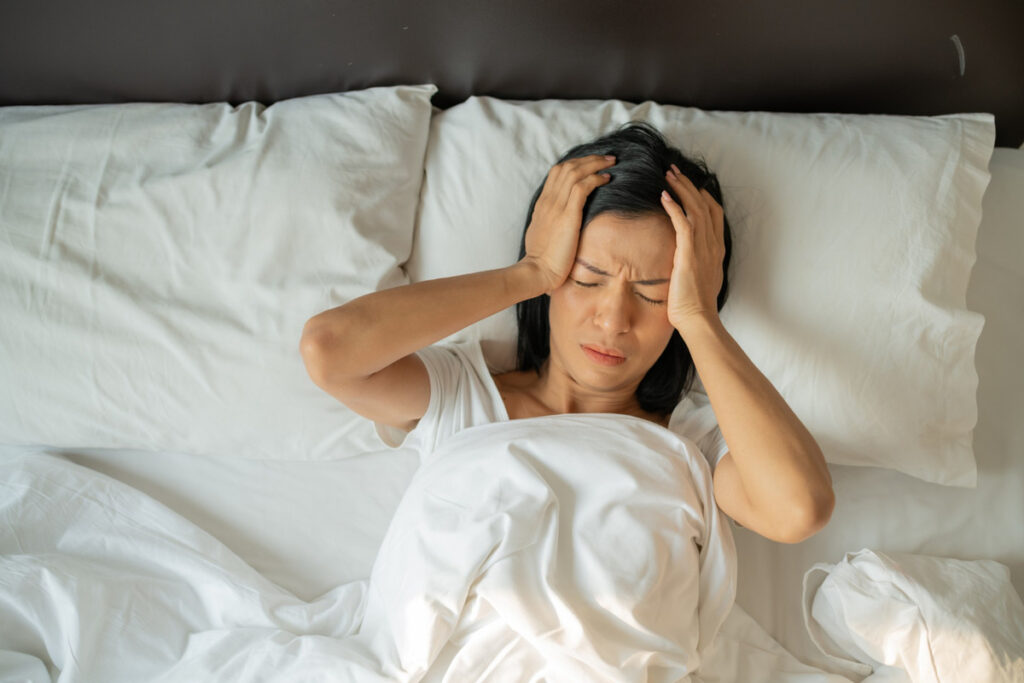Insomnia secondary to tinnitus is a condition where the constant ringing or buzzing in the ears disrupts sleep, leaving individuals exhausted and frustrated.
Tinnitus affects millions of people worldwide, and when it interferes with rest, the consequences extend far beyond simple tiredness.
Chronic insomnia linked to tinnitus can impair mental health, reduce productivity, and worsen the perception of ear ringing itself.
Understanding this relationship is key to finding relief and reclaiming restorative sleep.
Insomnia Secondary to Tinnitus
Tinnitus is the perception of sound in the absence of an external source, often described as ringing, buzzing, or hissing.
When this phantom sound becomes constant, it can interfere with the brain’s ability to relax and fall asleep.
Insomnia secondary to tinnitus occurs because the quiet environment at night amplifies the perception of tinnitus.
The more individuals focus on the noise, the harder it becomes to drift into sleep.
Stress and anxiety worsen the cycle, creating a loop of sleeplessness and heightened awareness of the condition.
Over time, the brain associates bedtime with frustration and alertness instead of relaxation, making insomnia persistent.
Why Tinnitus Makes Sleep So Difficult
At night, external distractions are minimal, so tinnitus becomes more noticeable.
The auditory system remains hyperactive, sending continuous signals to the brain that compete with natural sleep rhythms.
This constant stimulation increases stress hormone levels, such as cortisol, which further delay sleep onset.
As sleep deprivation builds up, the perception of tinnitus grows louder and more intrusive.
Poor sleep also impacts neurotransmitters involved in mood regulation, worsening anxiety and depression, which intensify tinnitus perception.
This cycle of stress, heightened perception, and fatigue becomes self-perpetuating, leaving sufferers trapped in sleepless nights.
Health Consequences of Insomnia Caused by Tinnitus
Living with insomnia secondary to tinnitus has serious health implications.
Daytime fatigue reduces concentration, memory, and productivity at work or school.
Persistent sleep loss increases the risk of mood disorders, including anxiety and depression.
Chronic insomnia weakens the immune system, leaving individuals more vulnerable to infections.
It also contributes to weight gain and metabolic issues due to hormonal imbalances.
Over time, cardiovascular health may be compromised, as poor sleep is linked to high blood pressure and increased risk of heart disease.
These health consequences highlight why managing tinnitus-related insomnia should be a priority.
Practical Strategies to Improve Sleep with Tinnitus
Adopting healthy sleep hygiene practices can make a significant difference.
Establish a consistent bedtime and wake-up routine, even on weekends.
Limit exposure to screens at night, as blue light disrupts melatonin production.
Create a relaxing pre-sleep ritual that may include reading, stretching, or meditation.
Avoid stimulants such as caffeine, nicotine, and alcohol, which can worsen both tinnitus and sleep quality.
Keep the bedroom environment cool, dark, and quiet, using blackout curtains or a sleep mask if necessary.
Sound Therapy and White Noise
Sound therapy can help mask tinnitus and make it less noticeable at night.
White noise machines, fans, or smartphone apps with nature sounds provide background sound that competes with tinnitus.
Some individuals find relief with music designed specifically for relaxation or sleep.
The goal is not to eliminate tinnitus but to shift focus away from it.
Over time, the brain adapts and pays less attention to the ringing, making sleep easier to achieve.
Professional Treatment Options
Cognitive Behavioral Therapy for Insomnia (CBT-I) is considered one of the most effective treatments for sleep problems caused by tinnitus.
CBT-I helps individuals change thought patterns and behaviors that reinforce insomnia.
Audiologists may recommend hearing aids with masking features for patients who also have hearing loss.
In severe cases, healthcare providers may prescribe short-term sleep aids, though these are typically not recommended as a long-term solution.
A multidisciplinary approach, involving audiologists, sleep specialists, and mental health professionals, often provides the best results.
Natural Remedies for Tinnitus and Better Sleep
In addition to lifestyle and professional interventions, natural remedies may support better sleep and reduce tinnitus severity.
Sonus Complete is a 100% natural supplement developed to improve auditory health and relieve tinnitus symptoms.
Its formula combines vitamins, minerals, and plant extracts known for their neuroprotective, anti-inflammatory, and circulatory benefits.
Key ingredients such as vitamin B12, hibiscus, garlic, olive leaf, and hawthorn berry support nerve health, reduce oxidative stress, and improve blood flow to the auditory system.
By addressing underlying inflammation and circulation issues, Sonus Complete may help lower the intensity of tinnitus sounds.
In addition, its calming properties can reduce stress and promote better sleep quality.
When combined with good sleep hygiene and sound therapy, this natural supplement can play a valuable role in managing insomnia secondary to tinnitus.
Take Back Control of Your Sleep and Ear Health
Insomnia secondary to tinnitus can feel overwhelming, but effective strategies exist to break the cycle.
By improving sleep hygiene, using sound therapy, and seeking professional guidance, you can reduce the impact of tinnitus on your nights.
Natural support like Sonus Complete may provide additional relief, promoting relaxation and ear health at the same time.
To know more about how Sonus Complete can help you restore calm nights and quieter days, visit this page.










One Response